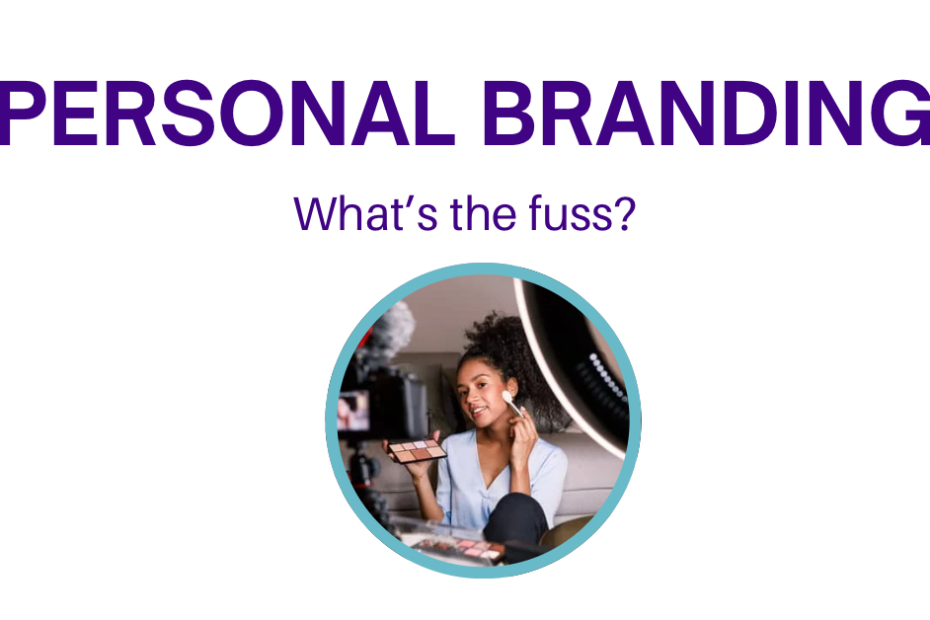Here’s a question I hear all the time from small business owners about personal branding.
“Everyone says I need a personal brand on social media, but what would I even post? I’m not interesting enough for Instagram or TikTok. I don’t want to do dances or trends—I just want to grow my business. What content actually works for boring people like me?”
If you’re nodding along to this, you’re not alone. Despite the fact that over 96% of small businesses use social media, many still struggle with the personal branding aspect—feeling like they don’t have anything interesting to share. But here’s the thing: you don’t need to be “interesting.” You need to be useful. And you need to be yourself.
What Personal Branding Actually Means
Before we dive into the “how,” let’s clear up the “what.” Personal branding isn’t the same as business branding. While business branding focuses on company logos, corporate values, and organisational identity, personal branding is about creating a clear, consistent identity around you as an individual.
Think of it as you as a product—not in a soulless, commodified way, but as an intentional way to express your unique value proposition. When you’re a solo business owner or small business owner, this distinction becomes crucial because you are the business. Customers aren’t just buying your service—they’re buying you, your expertise, your approach, and your reliability.
Everyone is talking “personal branding”
Personal branding has exploded for several reasons that directly affect solo and small business owners
The Trust Factor: People increasingly want to buy from actual humans they can relate to, not faceless corporations. Authenticity has become the currency of trust, and in 2025, trust is everything.
Social Media Equalisation: You don’t need a marketing budget or corporate backing anymore, just consistency and value. Anyone can build an audience.
Career Protection: In an uncertain economy, being known for your expertise provides security. Becoming the “go-to” person in your niche isn’t just for the famous or powerful anymore.
The Gig Economy Reality: With more freelancers and consultants, your personal reputation is your business reputation. You can’t hide behind a company brand.
Here’s What People Actually Want
The internet is already full of glitter, filters, and strangers pointing at text bubbles in the air. Nobody’s begging for another awkward dance or lip-sync.(unless you are 15 lol) What people actually care about is:
- Can you solve a problem they have?
- Can you make them laugh or feel seen?
- Can you show them something they didn’t know yesterday?
That’s it.
Personal Brand isn’t about being Self Obsessed
The phrase “personal brand” makes people break out in hives because it sounds self-obsessed. But a good personal brand is actually about the audience. You’re just the delivery vehicle.
If you’re a small business owner, your personal brand should reflect the same thing your business does, helping your people. If you’re a designer, share how you approach projects. If you’re a baker, show how you avoid dry sponge. If you’re a consultant, share the questions your clients always ask (and answer them publicly).
Instead of “I’m a consultant,” try “Here’s the $10K mistake I see businesses make every month” with a simple breakdown. That’s the difference between talking about yourself and being useful to others.

What If You’re “Boring”?
Good news, boring works. Some of the most successful creators online talk about the dullest stuff imaginable—spreadsheets, cleaning hacks, productivity tips. The reason they blow up is because they’ve tapped into something other people need.
You don’t have to be a walking circus. You have to be consistent and clear. If you’re not interesting to yourself, fine. Be helpful to someone else.
The fear of “what will people think” keeps more good ideas buried than bad ones ever could. Your future customers want to work with humans, not corporate robots.
What to Post
Here’s your 5-minute daily brand builder:
- Behind the scenes of your work, even the messy bits—show your actual workspace, your process, your Monday morning coffee situation
- The “obvious” stuff you think no one would care about (spoiler: they will)—that thing you explain to every new client? Post about it
- Mistakes you’ve made and what you learned—vulnerability builds trust faster than perfection ever will
- Opinions—yes, you’re allowed to have them, especially about your industry
- Stories—people remember stories more than facts, so share the weird client request or the project that almost went sideways
Try this framework:
- Monday: Share one thing that surprised you about your work this week
- Tuesday: Answer a question someone asked you recently
- Wednesday: Show your workspace/process, even if it’s messy
Forget about polishing your life into a glossy highlight reel. Just post the things you’d say to a friend over coffee. That’s how you build trust. If you need more check out the Content Ideas Planner here. (get in touch as I am happy to have a few extra testers at 40% off for your feedback)/
Personal Branding a Final Thought
Personal branding isn’t an audition for the “Most Interesting Person on Earth.” It’s showing up online in a way that actually connects with the people you want to reach. If you do that with clarity, honesty, and a bit of personality, you’re already miles ahead of the TikTok dancers.
In a world where everyone’s competing for attention, having a clear personal brand is how you cut through the noise and connect with the right people.
Ready to start? Pick one thing you learned this week. Write three sentences about it. Post it tomorrow. That’s a start!

Pingback: Business Content Mistakes: 8 Archetypes That Hurt Your Brand.
Comments are closed.